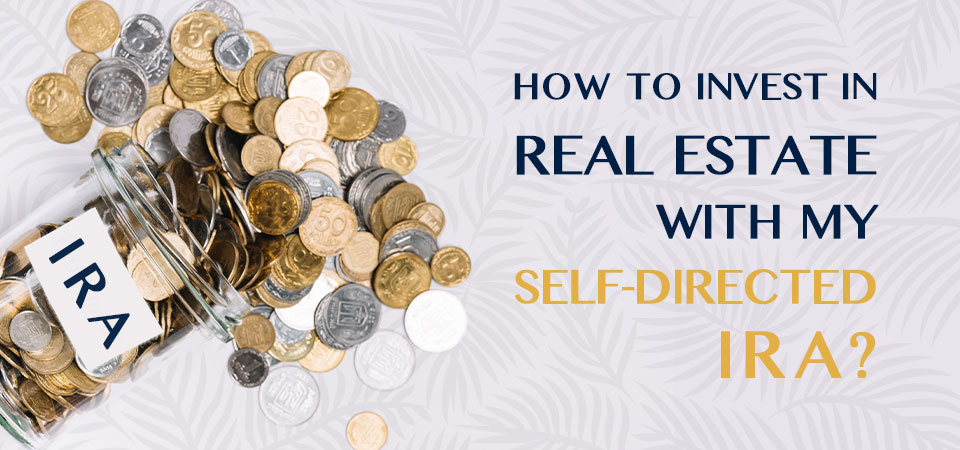Investing in Real Estate with IRA Money: A Complete Guide
What is an IRA?
An Individual Retirement Account (IRA) is a type of retirement account that provides tax advantages for individuals who wish to save for retirement. There are different types of IRAs, but they all work in a similar way: contributions to the account are tax-deductible, and the investment earnings are tax-deferred until withdrawn.
Why Invest in Real Estate with IRA Money?
Real estate has proven to be a successful investment for many individuals. It provides a tangible asset that can generate income and appreciate in value over time. Investing in real estate with IRA money can provide additional tax advantages and diversify your retirement portfolio.
Here are some benefits of using IRA money for real estate investment:
Tax Benefits
Investing in real estate with IRA money can provide tax-free growth and income. Any rental income generated by the property flows back into the IRA account tax-deferred. Furthermore, the capital gains from the sale of the property do not trigger any taxes within the IRA account. This is especially beneficial for individuals in high tax brackets who want to grow their retirement savings while minimizing tax liabilities.
Leverage
IRA money can be used to finance a portion of the purchase price of a real estate investment. The remaining balance can be financed through external sources such as loans. This is called leveraging, and it can amplify the returns of the investment while keeping the IRA fund relatively safe.
Diversification
Diversifying your retirement portfolio by investing in real estate with IRA money can help reduce the risks associated with investing in a single asset class. Real estate can provide a hedge against stock market volatility and inflation, and can generate steady income for your retirement years.
Benefits of Using IRA Money for Real Estate Investment
Investing in real estate with IRA money can provide substantial benefits to investors. Here are some of the key advantages:
Tax Benefits
One of the most significant benefits of investing in real estate with IRA money is the tax advantages. The rental income and capital gains from selling the property flow back into the IRA account tax-free. This means that investors can grow their retirement savings while minimizing their tax liabilities.
Leverage
IRA money can be used to finance a portion of the purchase price of a real estate investment. This means that investors can use a smaller amount of their own money and borrow the rest through external sources such as loans. This is called leveraging, and it can amplify the returns of the investment while keeping the IRA fund relatively safe.
Diversification
Investing in real estate with IRA money can provide investors with diversification benefits. Holding a real estate investment in the IRA fund can help to cushion against market volatility and provide a steady stream of rental income. By diversifying their IRA investments into real estate, investors can reduce their exposure to other asset classes like stocks and bonds and potentially increase their overall returns while minimizing risk.
Overall, investing in real estate with IRA money can be a great way to build wealth while minimizing taxes and diversifying one’s portfolio. However, investors should be aware of the rules and restrictions involved in using retirement funds for real estate investments and choose a self-directed IRA and investment property carefully.
How to Invest in Real Estate with IRA Money
Investing in real estate with IRA money requires careful planning and execution. Here are the steps involved in investing in real estate with IRA money:
Choose a Self-Directed IRA
To invest in real estate with IRA money, investors need a self-directed IRA. Traditional IRAs are typically managed by an investment firm which only allows investment in traditional financial products like stocks and bonds. A self-directed IRA, on the other hand, allows for greater flexibility and allows investors to invest in non-traditional assets like real estate.
Choose an Investment Property
Once a self-directed IRA has been established, investors need to choose a suitable investment property. Investors may consider different types of properties, such as single-family homes, multi-family homes, commercial properties, and land. Investors should also research market conditions and choose a property that has potential for income generation or appreciation.
Fund the IRA
After identifying a suitable investment property, investors can fund the IRA with money from the account. If there is not enough money in the IRA to purchase the property outright, investors can use a non-recourse loan to finance the remaining amount of the purchase price. Investors should also be aware of other expenses such as management fees and property taxes when budgeting for their investment.
Buy the Property
When the IRA is funded, investors can buy the property by instructing the IRA custodian to complete the transaction. All income and expenses related to the property must be paid through the IRA account. Investors should also make sure to follow all the IRS rules regarding prohibited transactions and disqualified persons to avoid penalties.
By following these steps, investors can invest in real estate with their IRA money and potentially enjoy tax-free income and long-term appreciation. However, it is important to carefully consider the expenses and restrictions associated with investing in real estate, and choose a suitable investment property.
Considerations When Investing with IRA Money
While investing in real estate with IRA money can be a great way to build wealth, it also requires careful consideration of the rules and restrictions involved. Here are some important factors to keep in mind:
Types of Properties Allowed
Not all types of real estate investments are allowed in an IRA account. The IRS prohibits investing in certain types of properties, such as collectibles and life insurance policies. In general, the property must be used for investment purposes and not for personal use. Investors should also be aware of any zoning regulations or local laws regarding the use of the property.
Rules for Withdrawing Funds
Withdrawals from a traditional IRA account before age 59½ are subject to a 10% penalty unless they qualify for certain exceptions. Any income generated from the investment property must also remain within the IRA account. Furthermore, investors should be aware of the required minimum distributions (RMDs) which start at age 72, and factor that into any investment decisions.
Fees and Expenses
Investing in real estate with IRA money involves a variety of fees and expenses. These may include management fees, property taxes, maintenance costs, and even upfront legal fees. Investors should also be aware of any fees associated with transactions and loan origination fees if they decide to leverage their investment.
It is important to carefully evaluate the expenses associated with any investment and ensure that they are reasonable and do not erode the potential gains of the investment.
Investors who keep these considerations in mind when investing in real estate with IRA money can minimize their risks and maximize their potential for long-term success. By staying within IRS guidelines and carefully evaluating expenses, investors can enjoy the benefits of real estate investment while growing their retirement funds.
Conclusion
Investing in real estate with IRA money can be a smart way to diversify a retirement portfolio and potentially generate tax-free income and appreciation. However, it is important for investors to understand the rules and restrictions involved and to choose a suitable investment property.
Summary of Benefits
The benefits of investing in real estate with IRA money include tax advantages, leverage, and diversification. Rental income generated by the property and capital gains from the sale of the property flow back into the IRA account tax-free. Investors can use IRA money to finance a portion of the purchase price, which can amplify the returns of the investment. Finally, investing in real estate with IRA money can provide diversification and help reduce exposure to other asset classes like stocks and bonds.
Summary of Considerations
Investing in real estate with IRA money requires careful consideration of the types of properties allowed, rules for withdrawing funds, and fees and expenses associated with the investment. Investors should ensure they are following all IRS guidelines and be aware of any penalties for prohibited transactions or disqualified persons. They should also carefully evaluate the expenses associated with owning and managing the investment property to ensure the potential gains are not eroded.
By following these tips and best practices, investors can potentially enjoy the benefits of investing in real estate with IRA money. It is important to remember to consult with a financial advisor or tax professional when considering any investment decisions involving retirement accounts.


